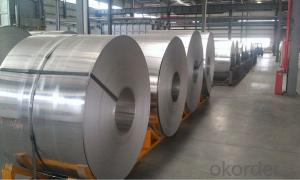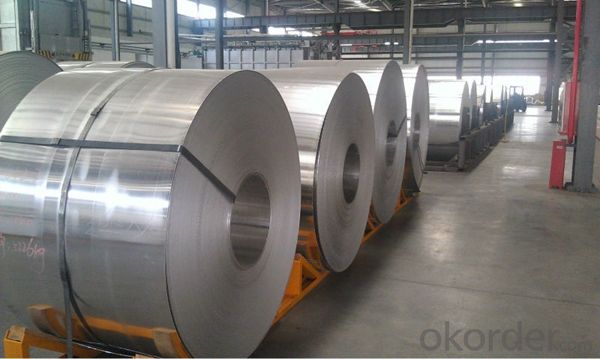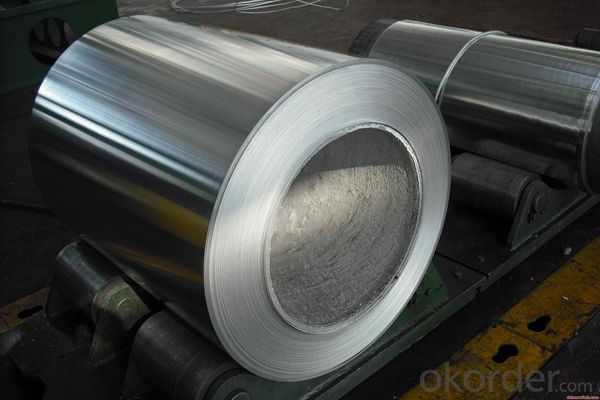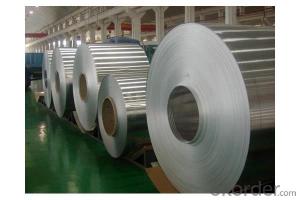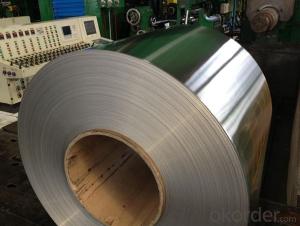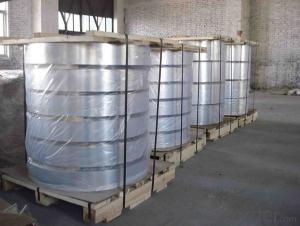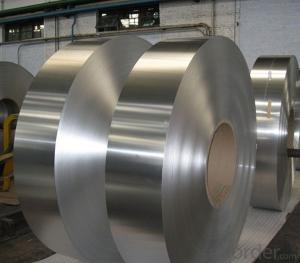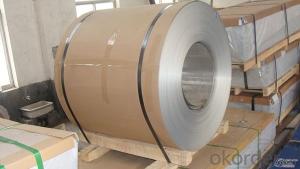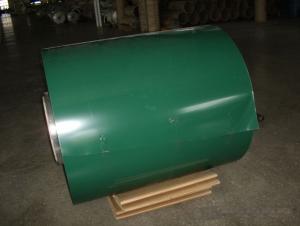Skid Aluminum Coil - Mill Finish Aluminium Coil for Roofing Panel 1xxx 3xxx 5xxx
- Loading Port:
- Shanghai
- Payment Terms:
- TT OR LC
- Min Order Qty:
- 5 m.t.
- Supply Capability:
- 1000 m.t./month
OKorder Service Pledge
OKorder Financial Service
You Might Also Like
Specification
Mill Finish AluminIum Coil for Roofing Panel 1XXX 3XXX 5XXX
1.Structure of Mill Finish AluminIum Coil for Roofing Panel 1XXX 3XXX 5XXX
Aluminum Sheets are strengthened and cut from raw materials with different alloys, such as AA5005, AA5052, etc. They are easy for processing in different shapes, good in intensity and can be quickly installed. Aluminium Sheets for Energy Saving Curtain Walls are good in energy saving, weather resistance, fire resistance, easy for maintenance and with many colors.
Aluminium Sheets for Energy Saving Curtain Walls are widely used in construction of metal walls, metal ceilings, car decoration, advertizing panels, etc.
2.Main Features of Mill Finish AluminIum Coil for Roofing Panel 1XXX 3XXX 5XXX
•High intensity
•Easy to be processed and shaped
•Weather resistance
•Anti-pollution & environment protection
3. Mill Finish AluminIum Coil for Roofing Panel 1XXX 3XXX 5XXX Images
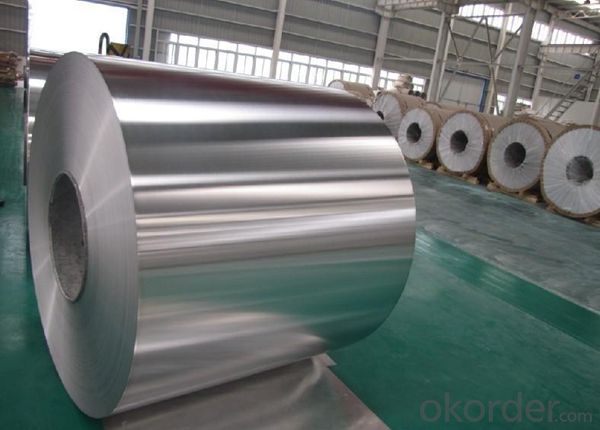
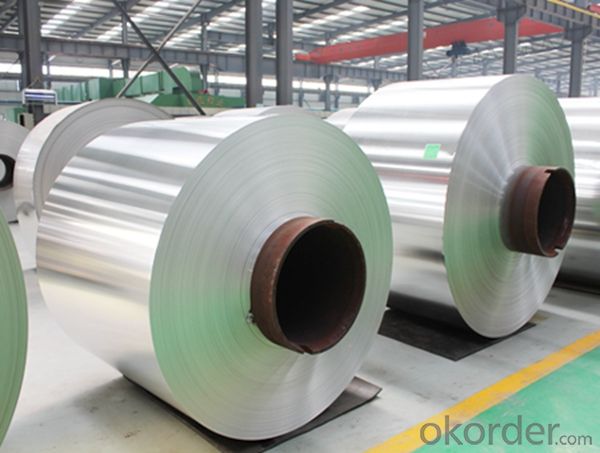
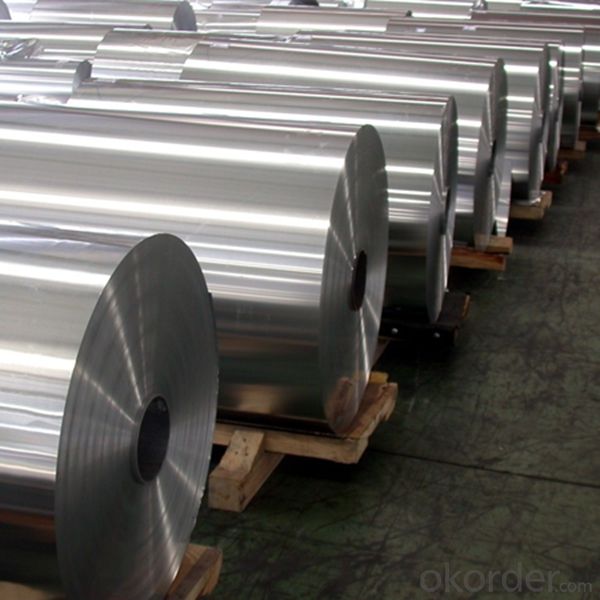
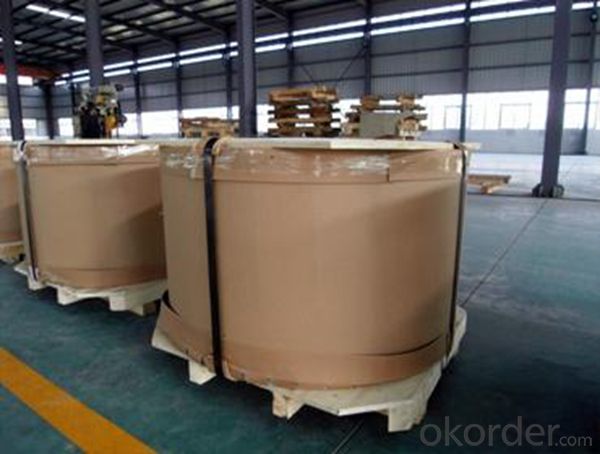
4.Specification of Mill Finish AluminIum Coil for Roofing Panel 1XXX 3XXX 5XXX
Alloy Number | AA5XXX 1XXX 3XXX |
Temper | H12, H14, H16, H18, H22, H24, H26, H32, HO, F |
Thickness | 0.1mm – 500mm |
Width | 10mm- 2200mm |
Standard | GB/T3880-2006, ASTM, ISO, EU standard |
5.FAQ of Mill Finish AluminIum Coil for Roofing Panel 1XXX 3XXX 5XXX
A.What about inspections to guarantee quality?
For each order for Aluminum Sheets with Mill Finished Surface AA5XXX, we will arrange strict inspection for raw materials, inspection during production and inspection for finished goods.
With requirement of customers, we also can arrange the third party inspection.
B.What about delivery?
We will put order for Aluminum Sheets with Mill Finished Surface AA5XXX in production schedule after order gets confirmed against copy of TT or L/C. Normally it takes about one month for production. Exact shipment schedule is different based on different sizes and quantity.
C.What is the MOQ?
5 tons for each size.
D. Where have you exported aluminium sheets?
We have exported aluminum sheets to many countries. Main markets include South East Asia, Middle East, North America, South America, etc.
- Q: What are the environmental regulations concerning the use of aluminum coils?
- <p>Yes, there are environmental regulations that govern the use of aluminum coils. These regulations vary by country and region but often include restrictions on emissions, waste disposal, and recycling requirements. For instance, in the United States, the Environmental Protection Agency (EPA) enforces rules that control the release of pollutants from aluminum production facilities. Additionally, there are guidelines for the proper disposal of aluminum waste to prevent environmental contamination. Recycling regulations also encourage the reuse of aluminum coils to reduce the environmental impact of mining and production. Compliance with these regulations is crucial for businesses that manufacture or use aluminum coils to avoid penalties and ensure sustainable practices.</p>
- Q: How do aluminum coils contribute to noise isolation?
- There are multiple ways in which noise isolation can be enhanced with the help of aluminum coils. To begin with, the utilization of aluminum as a material for coils offers exceptional thermal and electrical conductivity, facilitating the dispersion of heat and electromagnetic interference. This, in turn, diminishes the likelihood of noise generated by these factors. Furthermore, noise isolation can be improved by designing aluminum coils with specific properties. By employing thicker aluminum wire, the coil's resistance can be increased, thereby reducing the transmission of electrical noise. Moreover, optimizing the shape and size of the coil can minimize vibrations and resonance, common sources of noise. In addition, the integration of aluminum coils with other noise isolating materials can yield beneficial results. For instance, combining them with acoustic foam or other sound-absorbing materials can create a barrier that prevents sound transmission. The aluminum coil serves as a structural support, while the additional materials absorb and dampen sound waves, further enhancing noise isolation. In conclusion, aluminum coils contribute to noise isolation by dispersing heat and electromagnetic interference, minimizing vibrations and resonance, and providing structural support for other noise isolating materials.
- Q: Cost of aluminium coil coating fluorocarbon paint?
- Spraying area is the same as above. The warranty period is 7-8 years. This answer is not satisfactory, we can also call Run Hao fluorocarbon Materials Co., Ltd., we will give you a detailed answer.
- Q: How do aluminum coils compare to brass coils in terms of corrosion resistance?
- Aluminum coils generally offer better corrosion resistance compared to brass coils. Aluminum forms a natural oxide layer on its surface, providing a protective barrier against corrosion. On the other hand, brass is a copper-zinc alloy and is more susceptible to corrosion, especially in certain environments or when exposed to moisture. However, the exact level of corrosion resistance can depend on various factors such as the specific alloy composition, coatings, and the conditions in which the coils are used.
- Q: What are the vibration damping properties of aluminum coils?
- Aluminum coils have good vibration damping properties due to their inherent stiffness and damping capacity. The material's high density and low modulus of elasticity allow it to absorb and dissipate vibrations effectively, reducing the transmission of energy through the coil. This makes aluminum coils ideal for applications requiring vibration control and noise reduction.
- Q: Is it possible to utilize aluminum coils in the automotive industry?
- <p>Yes, aluminum coils are widely used in the automotive industry. They are employed in various applications such as engine parts, heat exchangers, and body panels due to their lightweight, corrosion resistance, and high strength-to-weight ratio. Aluminum's recyclability and energy efficiency in production also contribute to its popularity in vehicle manufacturing.</p>
- Q: What is the difference between hot rolled and cold rolled aluminum coils?
- The production process and resulting properties of the final product are what differentiate hot rolled and cold rolled aluminum coils. To produce hot rolled aluminum coils, aluminum ingots are heated above their recrystallization temperature, typically around 450°C (842°F), and then rolled through a series of rollers to reduce thickness and shape them into coils. This process allows for fast production and the ability to create larger coils. However, hot rolling can result in a less precise and less smooth surface finish, with potential for surface defects and oxidation. On the other hand, cold rolled aluminum coils are produced by further processing hot rolled coils. First, the hot rolled coils are pickled, or chemically treated, to remove any mill scale or impurities. Then, they undergo cold rolling, where they are passed through a series of rollers at room temperature. This process yields a more precise and smoother surface finish, with excellent dimensional accuracy and tighter tolerances. Cold rolling also enhances the strength and hardness of the aluminum, making it more suitable for certain applications. In terms of properties, hot rolled aluminum coils generally have lower strength and hardness compared to cold rolled coils. They also have a higher chance of surface defects and oxidation due to the high temperature involved in the production process. On the other hand, cold rolled aluminum coils exhibit higher strength and hardness, as well as better surface finish and dimensional accuracy. These properties make cold rolled aluminum coils more suitable for applications that require higher quality and precision. Ultimately, the choice between hot rolled and cold rolled aluminum coils depends on the specific requirements of the end-use application. Hot rolled coils are often employed in applications where speed and cost-effectiveness are prioritized, while cold rolled coils are preferred for applications that demand higher quality, precision, and strength.
- Q: Can aluminum coils be used in high-pressure applications?
- No, aluminum coils are not typically used in high-pressure applications due to their lower strength and less resistance to deformation compared to other materials such as steel.
- Q: How are aluminum coils cut to length?
- Aluminum coils are typically cut to length using specialized machinery such as slitters or cut-to-length lines. These machines use sharp circular blades or shearing mechanisms to accurately and precisely cut the coils into desired lengths. The process involves unwinding the coil, passing it through the cutting mechanism, and then rewinding the cut pieces.
- Q: How are aluminum coils used in the manufacturing of signage?
- Aluminum coils are widely used in the manufacturing of signage due to their numerous beneficial properties. These coils are typically made from high-quality aluminum alloy, which offers excellent corrosion resistance and durability, making them ideal for outdoor applications. The first step in using aluminum coils for signage manufacturing is the process of coil slitting. This involves cutting the large aluminum coils into smaller, more manageable sizes that can be easily shaped and formed to meet specific design requirements. This slitting process ensures that the coils are the right width and thickness for the desired signage application. Once the coils are properly sized, they are typically fed into a roll-forming machine. This machine allows for the precise shaping of the aluminum coils into the desired signage profiles, such as flat panels, letters, or channel letters. The flexibility of aluminum allows for intricate and customized designs to be easily achieved. Aluminum offers great versatility in terms of finishing options. The coils can be coated with various protective finishes, such as polyester or PVDF coatings, which provide enhanced durability and resistance to fading, chipping, or peeling. These finishes also allow for a wide range of color choices, enabling signage manufacturers to create eye-catching and vibrant displays. Furthermore, aluminum coils are lightweight, making them easier to handle during the fabrication process and reducing transportation costs. Their lightweight nature also makes them suitable for mounting on various surfaces, such as walls, poles, or freestanding structures. In summary, aluminum coils play a crucial role in the manufacturing of signage by providing a durable, corrosion-resistant, lightweight, and versatile material. They can be easily shaped and formed to create customized designs, and their protective finishes ensure long-lasting and visually appealing signage displays.
Send your message to us
Skid Aluminum Coil - Mill Finish Aluminium Coil for Roofing Panel 1xxx 3xxx 5xxx
- Loading Port:
- Shanghai
- Payment Terms:
- TT OR LC
- Min Order Qty:
- 5 m.t.
- Supply Capability:
- 1000 m.t./month
OKorder Service Pledge
OKorder Financial Service
Similar products
Hot products
Hot Searches
Related keywords
